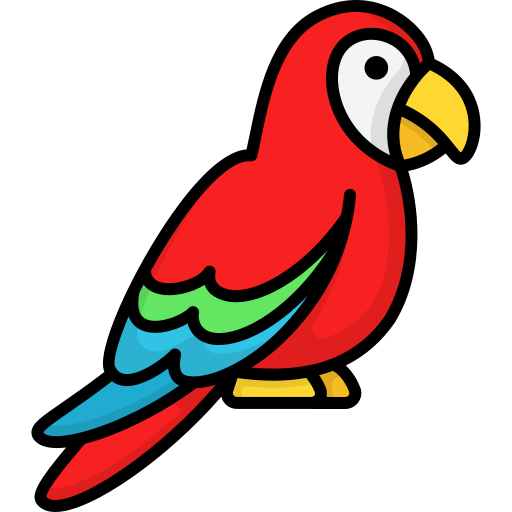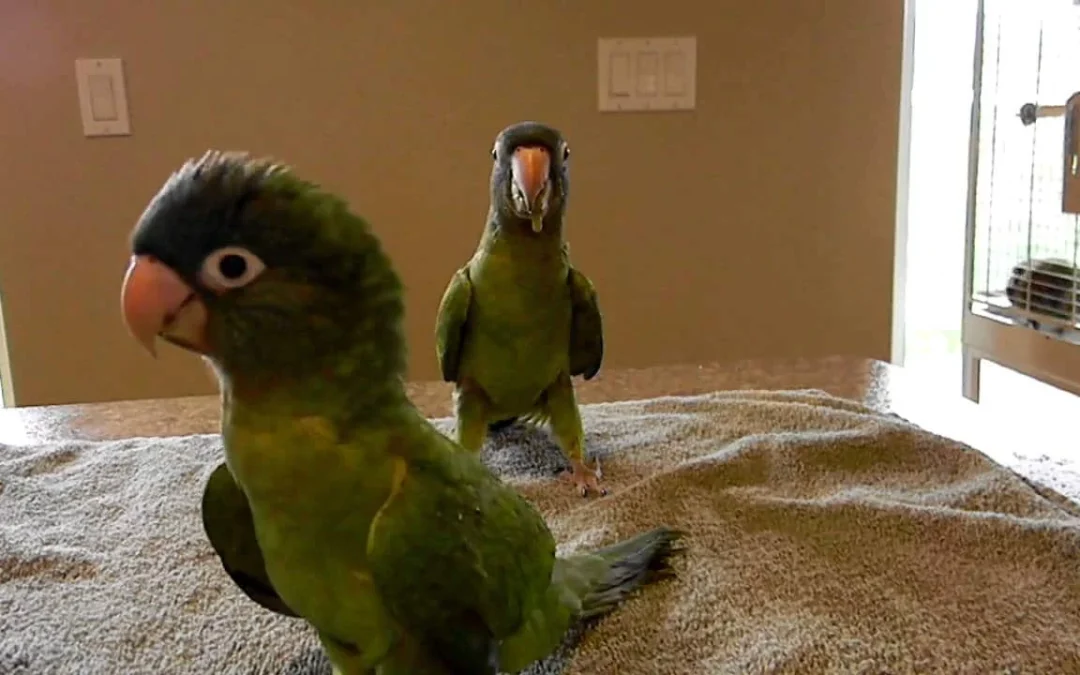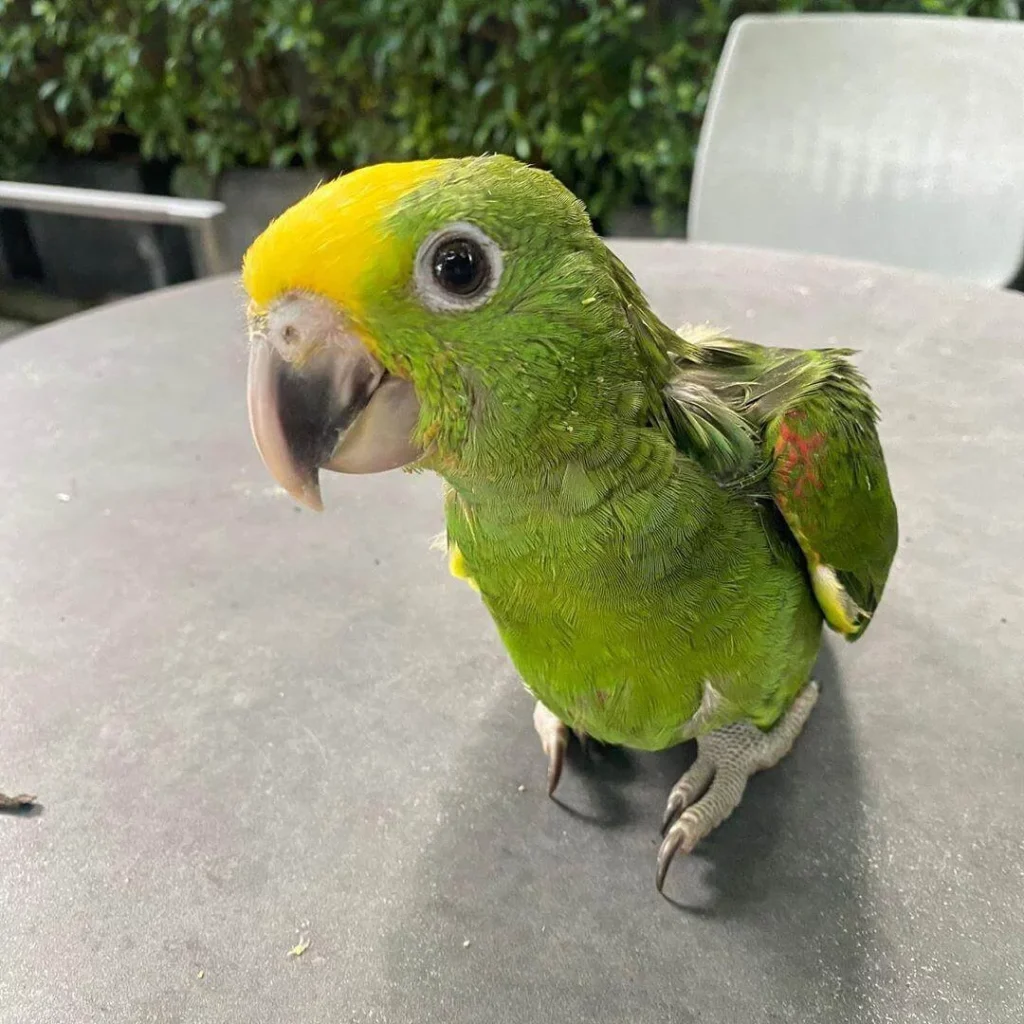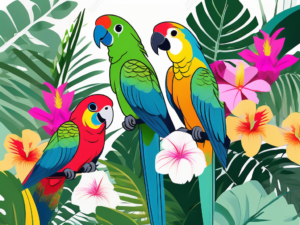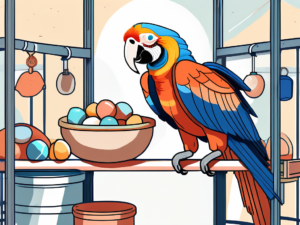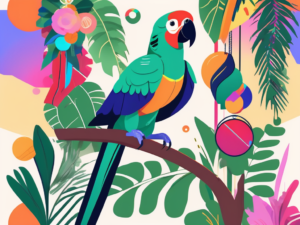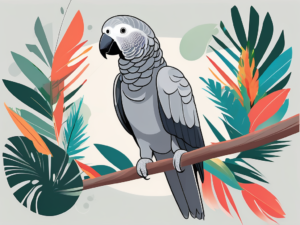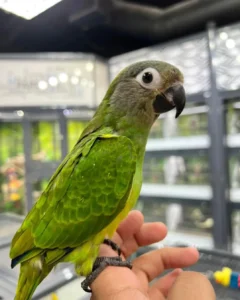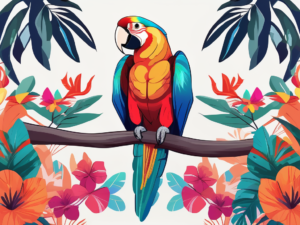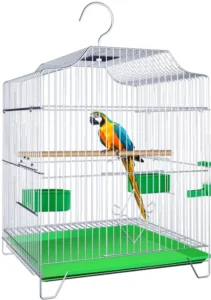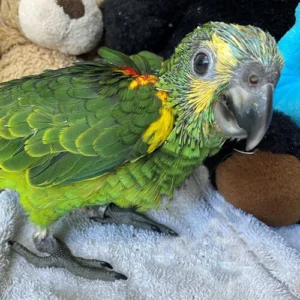Welcome to Parrots for Sale, your premier online store for all things parrot-related. Whether you’re ready to buy parrots online, seeking to purchase hand-raised parrots, or just exploring how to care for your new feathered friend, this detailed guide is designed to provide you with essential parrot care tips. Our aim is to help you ensure a happy, healthy life for your parrot and make your experience of buying pet parrots as smooth as possible.
Understanding Parrot Care: Why It Matters
The Importance of Proper Parrot Care
Parrots are vibrant, intelligent creatures that require more than just a cage and food. Understanding and implementing proper care is crucial for their well-being. Proper care ensures that your parrot remains healthy, mentally stimulated, and socially happy. At Parrots for Sale, we’re dedicated to providing you with the knowledge to offer the best care possible.
Key Components of Parrot Care
Effective parrot care encompasses several key areas:
- Diet and Nutrition
- Housing and Environment
- Socialization and Training
- Health and Veterinary Care
- Enrichment and Mental Stimulation
1. Diet and Nutrition: Fueling Your Parrot’s Health
Understanding Parrot Dietary Needs
When you decide to buy parrots online or visit a parrot sales online store, understanding their dietary needs is essential. Parrots have specific nutritional requirements that vary by species. A balanced diet is crucial to maintaining their health and vitality.
Essential Nutrients for Parrots
- Pellets: High-quality pellets should be a staple in your parrot’s diet. They provide essential vitamins and minerals.
- Fruits and Vegetables: Fresh produce is vital. Offer a variety of colorful fruits and vegetables for optimal nutrition.
- Seeds and Nuts: While seeds and nuts are a good source of fat and protein, they should be given in moderation to prevent obesity.
Avoiding Harmful Foods
Certain foods can be harmful to parrots. Avoid giving them:
- Avocado: Toxic to parrots.
- Chocolate: Contains substances that are harmful to birds.
- Caffeine and Alcohol: These can be toxic and cause serious health issues.
2. Housing and Environment: Creating a Safe and Stimulating Space
Choosing the Right Cage
When you order parrots or are preparing for a new arrival, the right cage is essential. The size and type of cage depend on the parrot species and their activity level.
Cage Size and Type
- Size: The cage should be spacious enough for the parrot to move around comfortably. Larger cages are always better.
- Bar Spacing: Ensure the bars are spaced appropriately to prevent escapes or injuries.
Cage Setup and Accessories
A well-designed cage setup enhances your parrot’s quality of life:
- Perches: Provide perches of different sizes and materials to promote foot health.
- Toys and Enrichment: Include a variety of toys to keep your parrot entertained and mentally stimulated.
- Bedding: Use safe, absorbent bedding to keep the cage clean and comfortable.
3. Socialization and Training: Building a Bond with Your Parrot
The Importance of Socialization
Parrots are social birds that thrive on interaction. Proper socialization helps in building a strong bond between you and your parrot.
Socializing Your Parrot
- Daily Interaction: Spend quality time with your parrot each day. Engage in activities like talking, playing, and training.
- Introducing New People and Animals: Gradually introduce your parrot to new people and pets to prevent anxiety and aggression.
Training Techniques
Training is crucial for a well-behaved parrot. Basic training can include:
- Step-Up Training: Teaching your parrot to step onto your hand on command.
- Trick Training: Simple tricks like “wave” or “fetch” can be fun and engaging for your parrot.
4. Health and Veterinary Care: Ensuring Your Parrot’s Well-being
Regular Veterinary Check-ups
Routine check-ups with an avian vet are essential for early detection and prevention of health issues. If you’re looking to buy hand-raised parrots, inquire about their health records and ensure they have been examined by a vet.
Common Parrot Health Issues
- Feather Plucking: Can be a sign of stress or health issues.
- Respiratory Problems: Look out for coughing, wheezing, or nasal discharge.
- Beak and Nail Care: Regular trimming and maintenance are necessary to prevent overgrowth.
Emergency Care
Be prepared for emergencies by knowing the location of the nearest avian vet. Familiarize yourself with basic first aid for parrots.
5. Enrichment and Mental Stimulation: Keeping Your Parrot Happy
The Need for Enrichment
Parrots are intelligent and require mental stimulation to prevent boredom and behavioral problems. Enrichment activities can include:
- Interactive Toys: Toys that challenge their problem-solving skills.
- Foraging Activities: Hiding food in various places to encourage natural foraging behavior.
- Flight Time: Safe, supervised flight time outside the cage is beneficial for their physical health.
DIY Enrichment Ideas
You can create simple enrichment toys at home:
- Paper Towel Rolls: Fill with treats for foraging.
- DIY Puzzle Toys: Hide food in puzzles made from safe household items.
Conclusion: Your Parrot Care Journey Begins Here
At Parrots for Sale, we understand the importance of comprehensive parrot care. Whether you’re here to buy parrots online, seeking affordable parrots for sale, or need guidance on parrot sales near me, we’re committed to helping you provide the best possible life for your feathered companion.
Remember, adopting a parrot is a long-term commitment that involves understanding their dietary needs, providing a safe and stimulating environment, engaging in regular socialization and training, and ensuring their health and well-being through routine care.
Explore our range of parrot care products and services, and feel free to contact us for more personalized advice. With the right knowledge and resources, you’ll be well-prepared to offer your parrot a loving and fulfilling home.
Thank you for choosing Parrots for Sale—your go-to parrot sales online store for all your parrot-related needs.
